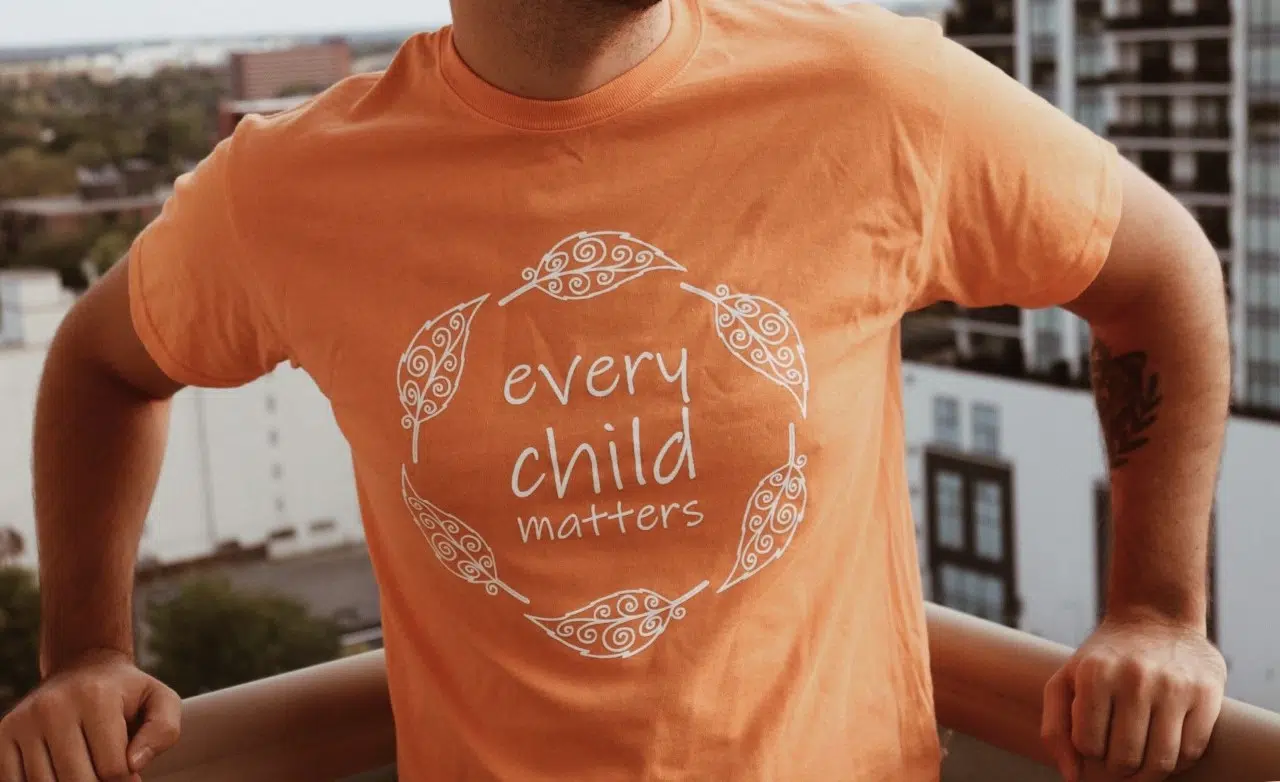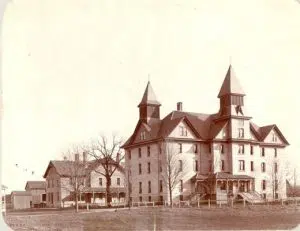
On Sept. 30, Canadians are encouraged to wear orange to raise awareness for residential schools. It recognizes a dark chapter in Canadian history (though, it wasn’t all that long ago, the last residential school closed in 1996), when Indigenous children were forcibly taken from their homes and sent to schools with a focus on assimilation.
Director of Development for Atlohsa Family Healing Services, Alana Lees, said it’s important for people to acknowledge that the residential schools speak to the history of colonization and systemic racism in Canada and have left lasting wounds for Indigenous people and their families.
“The legacy of residential schools and the lasting impact has been a lot of trauma and what we call intergenerational trauma,” she said. “There were a lot of atrocities that happened against the youth that went to these schools.”
The residential schools worked to erase Indigenous languages and cultural practices. Children suffered abuse, neglect and a loss of personal and self-identity.
“A lot of the ways had negative impacts on those youth who grew up to be adults who may have felt lost in their culture,” she said. “The Indigenous community is very connected to culture as a part of identity, as a part of security, as a part of identity…so without that, a lot of people had lost their ways.”
Like Phyllis (Jack) Habstad, for example, a Northern Secwpemc (Shuswap) from the Stswecem’c Xgat’tem First Nation (Canoe Creek Indian Band), who inspired Orange Shirt Day when she attended the St Joseph Mission Residential School in BC for one year in 1973-1974.
“I remember going to Robinson’s store and picking out a shiny orange shirt. It had string laced up in front, and was so bright and exciting – just like I felt to be going to school!” she wrote, sharing her story in her own words for the Orange Shirt Day campaign. “When I got to the Mission, they stripped me, and took away my clothes, including the orange shirt! I never wore it again.”
While Lees said she couldn’t relate directly, several members of her family including her mother all attended residential schools.
“I can attest to that trauma and that lasting impact and what that has had on my personal family members alone,” she said. “Having that experience and understanding just hits you so close to home…it’s painful.”
Lees added that the cycle of negativity left by the residential schools could take generations to fully heal.
“It effects their children, and their children, and their children,” she said. “We’re working really hard right now to try and break that cycle.”
Even here in London, the Mount Elgin Industrial School, which sits on the Chippewa of the Thames First Nation Reserve, acted as a residential school from 1851-1946.
“Part of the practice that was put in place to try to assimilate the children that attended there was training,” said Lees. “It was basically teaching children to farm…and so a lot of the kids were actually doing the farming work, so in some descriptions it’s considered a forced labour camp.”
The atrocities of the residential schools happened in our communities, and not long ago. But Lees and Atlohsa Family Healing Services are hoping to continue to spread awareness through the Orange Shirt campaign, and their continued work in the Indigenous community in London.
Atlohsa sold out of their orange t-shirts this year, and are encouraging people to share photos of their own orange attire via social media.
“Our sales of orange shirts are going to all of our Atlohsa services most essential needs,” said Lees.
In-person events are a challenge amidst the COVID-19 pandemic, so Atlohsa will be sharing stories and information through their Facebook and Instagram page all day on Sept. 30 in order to raise awareness and educate.
For more information visit the Orange Shirt Day website and the Atlohsa Facebook Event.






Comments